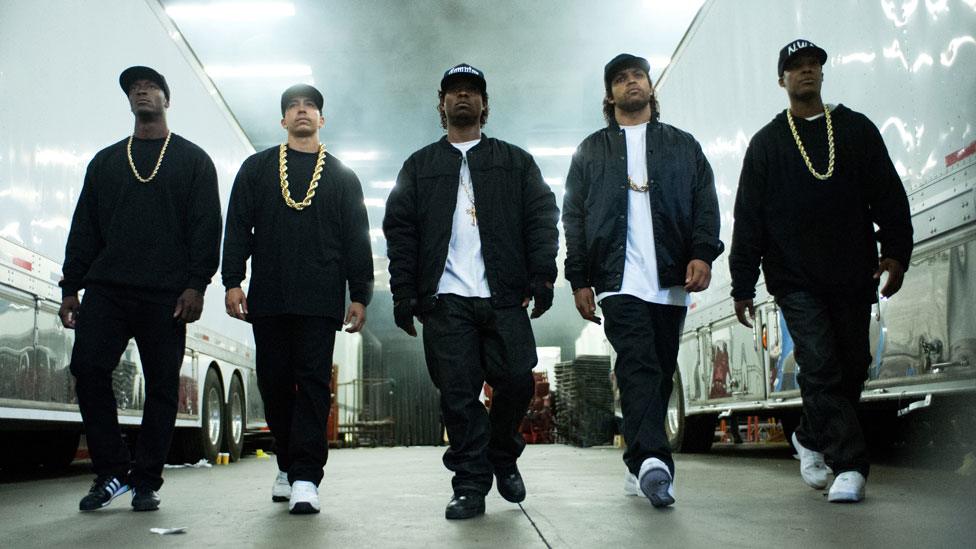The film stars who snubbed the Oscars
- Published
As Spike Lee and Jada Pinkett Smith announce they are boycotting this year's Oscars, we look at some of the Oscar winners and nominees who have snubbed the glitzy ceremony over the years.
Katharine Hepburn
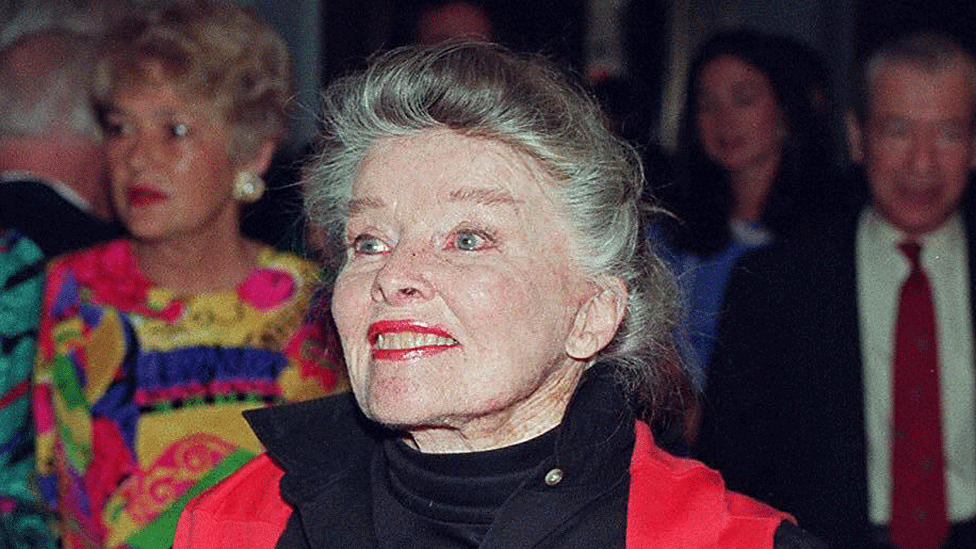
Hepburn was greeted warmly when she presented an Oscar in 1974
She won four Oscars (Morning Glory, 1934, Guess Who's Coming to Dinner, 1968, The Lion in Winter, 1969 and On Golden Pond, 1982) but never turned up to receive any of them.
Hepburn made one appearance at the 1974 awards but that was to present a memorial award to producer and friend Lawrence Weingarten.
She received a standing ovation when she walked on to the stage and said: "I'm so glad I didn't hear anyone shout out: 'It's about time'. I am the living proof that a person can wait 41 years to be unselfish."
Dudley Nichols
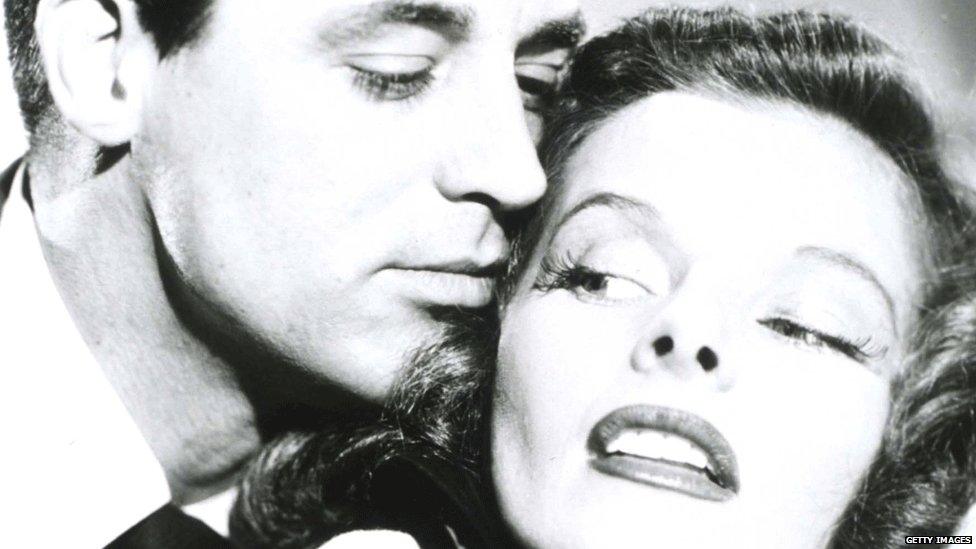
Dudley Nichols wrote the screenplay for Bringing Up Baby
Nichols, whose credits included Stagecoach, Bringing Up Baby and For Whom the Bell Tolls, won a screenplay award for The Informer (1935).
But he refused to accept it because the Writers' Guild was striking at the time - he was the first person to refuse an Academy Award.
According to the LA Times, external, he finally took the Oscar home in 1938 after the National Labor Relations Board certified the Screen Writers Guild as the bargaining representative for movie writers and Academy records indicate that he was in possession of a statuette by 1949.
George C Scott

Scott dismissed the Oscars as "a two-hour meat parade"
With his granite face and characteristically intense performances, George C Scott was regarded as one of the finest American actors of his generation.
His magisterial portrayal of General George S Patton in Patton won him the best actor award at the 1971 Oscars.
But not only did he boycott the ceremony, he actually refused the award itself - the first person to turn down an acting Oscar.
He said that the politics surrounding such awards was "demeaning" and described the Oscar ceremony as "a two-hour meat parade".
Marlon Brando
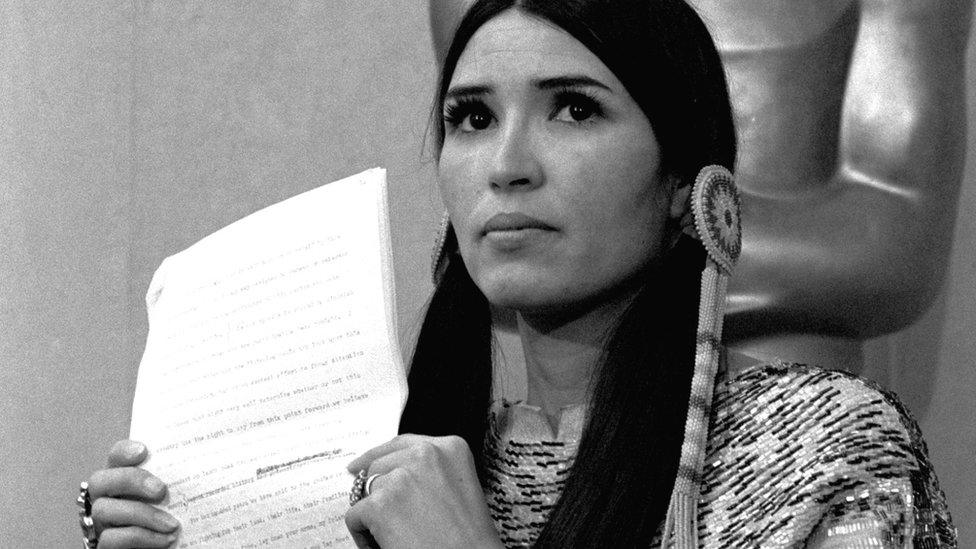
Activist Sacheen Littlefeather refused the award on Brando's behalf
The star won two Oscars - one in 1955 for On the Waterfront and the second in 1972 for his comeback with The Godfather in the role of Mafia leader, Don Vito Corleone.
But he refused to accept the latter prize, choosing instead to send Native American actress and activist Sacheen Littlefeather to refuse the award on stage, in order to demonstrate his dismay at the entertainment industry's treatment of Native Americans.
Banksy
The British artist, famous for his stencils daubed on street walls, was nominated for a best documentary award for his debut feature film, Exit Through The Gift Shop in 2011.
He asked if he would be allowed to accept the prize in disguise if he won, so he could keep his closely guarded identity a secret.
But Academy Awards refused, in case gatecrashers also dressed up in disguise and tried to get in.
In the end, the award went to financial crash film Inside Job.
Woody Allen
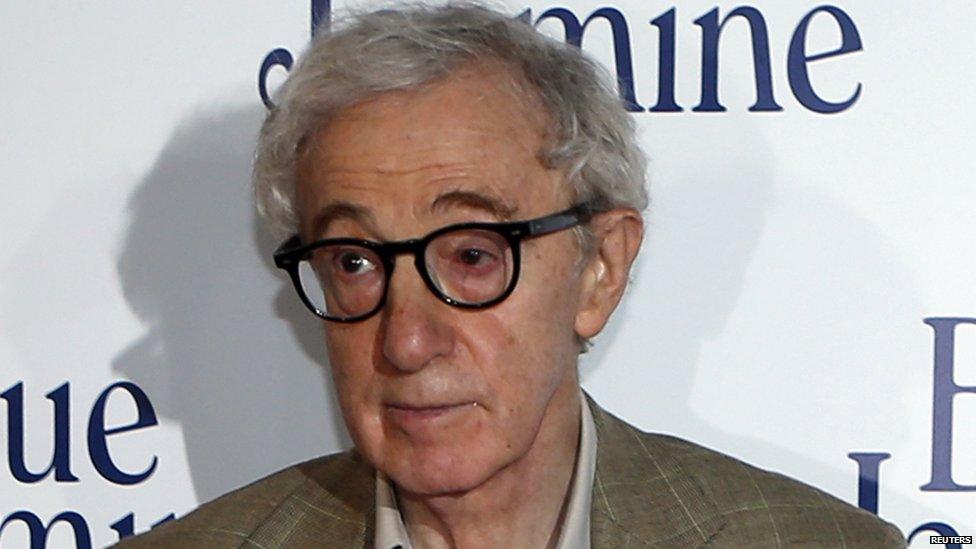
Woody Allen's last Oscar win was in 2012 for Midnight in Paris.
Allen is well known for his absence at the Oscars. He's won four Academy Awards over a 44 year period but has never accepted any of them in person.
In Woody Allen: A Documentary (2011), archive footage showed the filmmaker explaining why he didn't attend the 1978 Oscars, where Annie Hall won several awards.
"I think what you get in awards is favouritism," Allen said.
"I mean, people can say, 'My favourite movie was Annie Hall. But the implication is that it's the best movie and I don't think you can make that judgment.
"Except for track - track and field - where one guy runs and you see that he wins, then it's OK. I won those when I was younger and those were nice because I knew I deserved them."
- Published19 January 2016
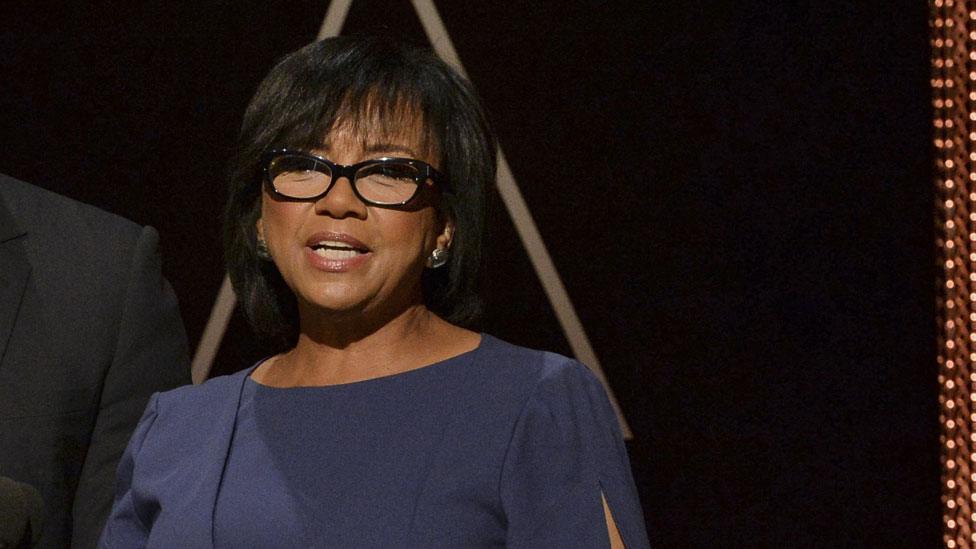
- Published19 January 2016

- Published19 January 2016
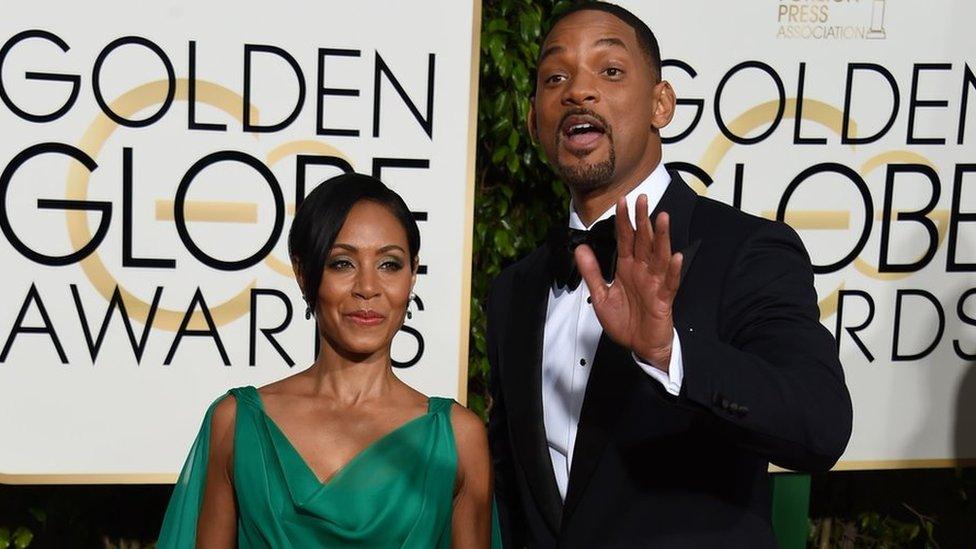
- Published15 January 2016
